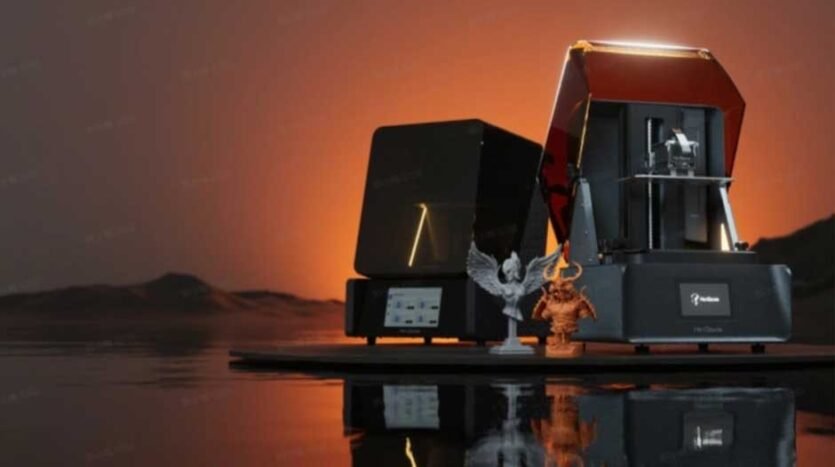Resin 3D Printers vs. FDM Printers: Which Is Right for You?
In the world of additive manufacturing, choosing between a resin 3d printer and an FDM printer often comes down to your priorities—precision, speed, material, or cost. Both technologies offer unique benefits, but they serve very different user needs.
Whether you’re a hobbyist, engineer, or small business owner, understanding the differences can help you invest in the right machine for your workflow.
This guide walks you through the core differences between resin and FDM printing, compares performance across various parameters, and highlights why the best resin 3d printer may offer superior results for certain applications.
Understanding the Technology Behind Resin and FDM Printing
How FDM Printers Work
Fused Deposition Modeling (FDM) printers operate by melting plastic filament and extruding it layer-by-layer to build the object. It’s the most common and accessible type of 3D printing technology, ideal for functional prototypes, basic parts, and low-budget setups.
How Resin 3D Printers Work
Resin 3d printer models, on the other hand, use photopolymerization—solidifying liquid resin with a UV light source layer by layer. This method achieves finer detail and smoother surfaces, making it highly suitable for professional-quality results.
Precision, Finish, and Speed: How Do They Compare?
Accuracy and Detail
Resin 3d printers offer significantly better resolution than FDM printers. While FDM printers are often limited by nozzle diameter and filament flow, resin machines can deliver sub-millimeter precision ideal for intricate details, perfect for miniatures, dental applications, and jewelry.
Surface Finish
Objects printed with a resin 3d printer have a smooth, injection-molded appearance straight off the build plate. FDM prints typically show visible layer lines and may require sanding or post-processing for a clean finish.
Print Speed
FDM printers can print larger parts faster, especially for low-detail items. However, resin printers can print entire layers simultaneously depending on the display technology (e.g., LCD or DLP), which can be faster for small, detailed jobs.
Pros and Cons of Each Printing Method
Advantages of FDM Printers
- Lower upfront cost
- Affordable filament materials
- Easier to maintain and clean
- Good for structural prototypes
Disadvantages of FDM
- Lower resolution
- Poor surface finish without post-processing
- Limited use in fine-detail applications
Advantages of Resin 3D Printers
- Exceptional detail and accuracy
- Superior surface finish
- Suitable for professional use in medical, design, and art
Disadvantages of Resin Printing
- Higher maintenance requirements
- Resin materials can be more expensive
- Post-processing (washing and curing) is necessary
Which One Should You Choose?
If you need strong functional parts quickly and cost-effectively, an FDM printer is often the right tool. However, if your work demands intricate detail, smooth surfaces, or client-facing results—such as dental models, jewelry, or design prototypes—a resin 3d printer is the better choice.
Recommended HeyGears Resin Printers That Beat Budget FDM Options
HeyGears is a leader in resin printing technology, offering machines designed to meet professional standards while remaining user-friendly. Unlike many budget FDM printers, HeyGears machines are equipped with AI-enhanced slicing algorithms, robust light engines, and intelligent workflow automation.
Among the best resin 3d printer options from HeyGears:
- UltraCraft Reflex: High-speed, dental-grade resin printer with real-time system monitoring.
- UltraCraft Artisan: Designed for ultra-fine detail, ideal for jewelry and precision prototyping.
- UltraCraft Edge: Balances speed, surface finish, and industrial-level accuracy.
These printers outperform basic FDM models in nearly every measurable category, especially when finish and precision matter.
Conclusion
Both FDM and resin printing have a place in the maker and professional world. But if your focus is on aesthetics, precision, or application-specific accuracy, then investing in a resin 3d printer—especially one from HeyGears—can offer lasting advantages.
Ready to upgrade your workflow? Explore the best resin 3d printer models on HeyGears and discover what precision really looks like.


